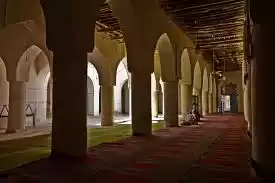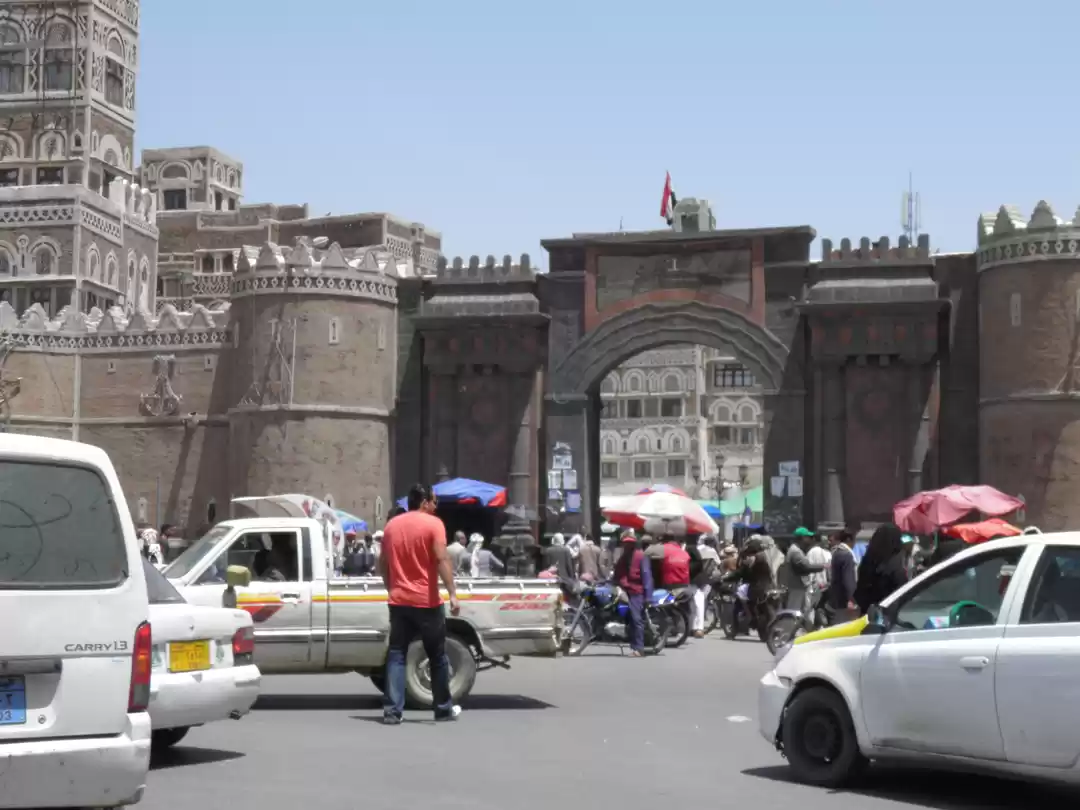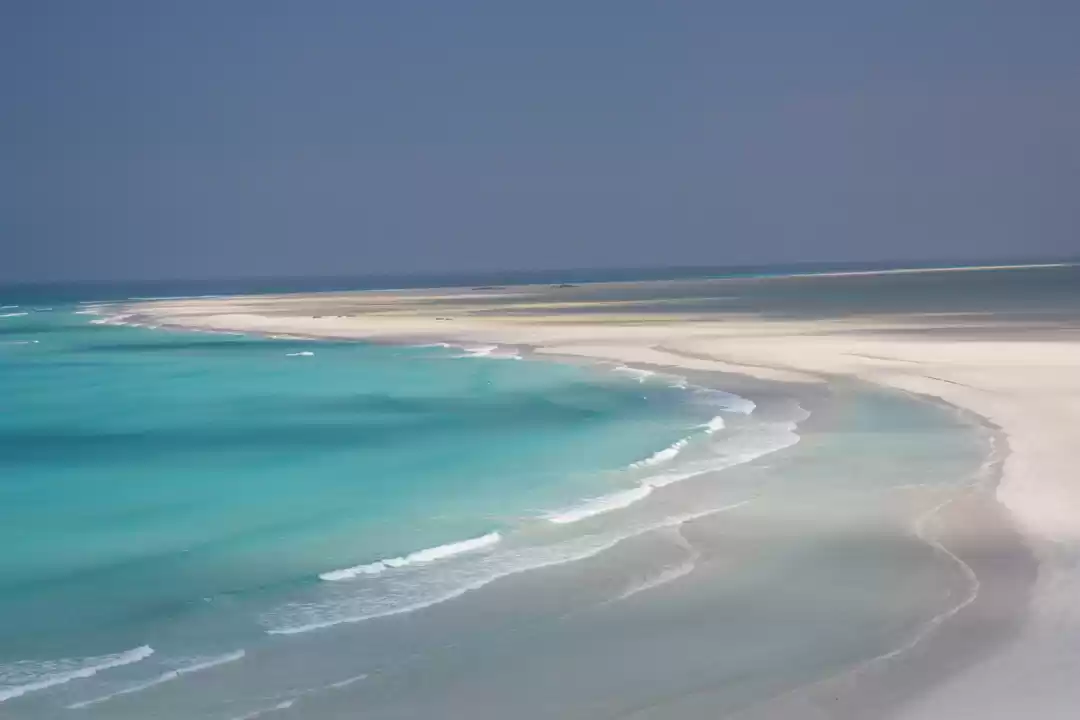Yemen Tourism and Travel Guide
Yemen (/ˈjɛmən/; Arabic: اليَمَن al-Yaman), officially known as the Republic of Yemen (الجمهورية اليمنية al-Jumhūrīyah al-Yamanīyah), is an Arab country in Asia, occupying the southwestern to southern end of the Arabian Peninsula. Yemen is the second largest country in the peninsula, occupying 527,970 km2 (203,850 sq mi). The coastline stretches for about 2,000 km (1,200 mi). It is bordered by Saudi Arabia to the north, the Red Sea to the west, the Gulf of Aden and Arabian Sea to the south, and Oman to the east. Although Yemen's constitutionally stated capital is the city of Sana'a, the city has been under rebel control since February 2015. Because of this, Yemen's capital has been temporarily relocated to the port city of Aden, on the southern coast. Yemen's territory includes more than 200 islands; the largest of these is Socotra. Yemen was the home of the Sabaeans (biblical Sheba), a trading state that flourished for over a thousand years and probably also included parts of modern-day Ethiopia and Eritrea. In 275 AD, the region came under the rule of the later Jewish influenced Himyarite Kingdom. Christianity arrived in the 4th century AD whereas Judaism and local paganism were already established. Islam spread quickly in the 7th century and Yemenite troops were crucial in the expansion of the early Islamic conquests. Administration of Yemen has long been notoriously difficult. Several dynasties emerged from the 9th to 16th century, the Rasulid being the strongest and most prosperous. The country was divided between the Ottoman and British empires in the early 20th century. The Zaydi Mutawakkilite Kingdom of Yemen was established after World War I in North Yemen before the creation of Yemen Arab Republic in 1962. South Yemen remained a British protectorate until 1967. The two Yemeni states united to form the modern republic of Yemen in 1990. Yemen is a developing country. Under the rule of President Ali Abdullah Saleh, Yemen was described as a kleptocracy. According to the 2009 international corruption Perception Index by Transparency International, Yemen ranked 164 out of 182 countries surveyed. In the absence of strong state institutions, elite politics in Yemen constituted a de facto form of collaborative governance, where competing tribal, regional, religious and political interests agreed to hold themselves in check through tacit acceptance of the balance it produced. The informal political settlement was held together by a power-sharing deal between three men: president Ali Abdullah Saleh, who controlled the state; major general Ali Mohsen al-Ahmar, who controlled the largest share of the army; and sheikh Abdullah al-Ahmar, figurehead of the Islamist Islah party and Saudi Arabia's chosen broker of transnational patronage payments to various political players, including tribal sheikhs. The Saudi payments have been intended to facilitate the tribes autonomy from the Yemeni government and to give the Saudi government a mechanism with which to weigh in on Yemen's political decision making. Yemen has been in a state of political crisis since 2011. In January 2011, a series of street protests began against poverty, unemployment, corruption and president Saleh's plan to amend Yemen's constitution and eliminate presidential term limit, in effect making him president for life. He was also grooming his eldest son Ahmed Saleh, the commander of the Republican Guard, to succeed him. The United States considers Al-Qaeda in the Arabian Peninsula (AQAP) to be the 'most dangerous of all the franchises of Al-Qaeda'. The U.S sought a controlled transition that would enable their counter-terrorism operations to continue, while Saudi Arabia's main concern was to maintain its influence in Yemen through some old regime figures and other tribal leaders who were part of the so-called 'GCC initiative'. President Saleh stepped down, the transition quickly proceeded per the 'GCC Initiative'; the powers of the presidency were transferred to Vice President Abd Rabbu Mansour Hadi, who was formally elected president on 21 February 2012 in a one-man election. The interim parliament conferred immunity on president Saleh and 500 of his associates that same month. A National Dialogue Conference was launched on 18 March 2012 to reach consensus on major issues facing the country's future. In January 2014, the National Dialogue Conference extended Hadi’s term for another year. The transitional process was disrupted by conflicts between the Houthis and Islah, as well as the al-Qaeda insurgency. In September 2014, the Houthis took over Sana'a, forcing Ali Mohsen al-Ahmar to flee the country, and prompted the formation of a new 'unity government' including a variety of Yemeni factions. A draft constitution was discussed that would split Yemen into six federal regions, but the Houthis rejected the proposal. Hadi, his prime minister and cabinet resigned on 22 January 2015 amid a political impasse against the Houthis and ongoing violence in the capital. Three weeks later, the Houthis declared themselves in control of the government in what Abdul-Malik al-Houthi called a 'glorious revolution', although opposition politicians, neighbouring states, and the United Nations decried the takeover as a coup d'état. Most of Yemen's political factions and the international community have refused to recognise the Houthis' authority, and UN-brokered talks on a power-sharing deal are ongoing. However, on 21 February, Hadi rescinded his resignation and declared he was still the legitimate president in Aden. Hadi called on government institutions to gather in Aden, which he proclaimed on 21 March 2015 was Yemen's 'economic and temporary capital' while Sana'a remains under Houthi control.












